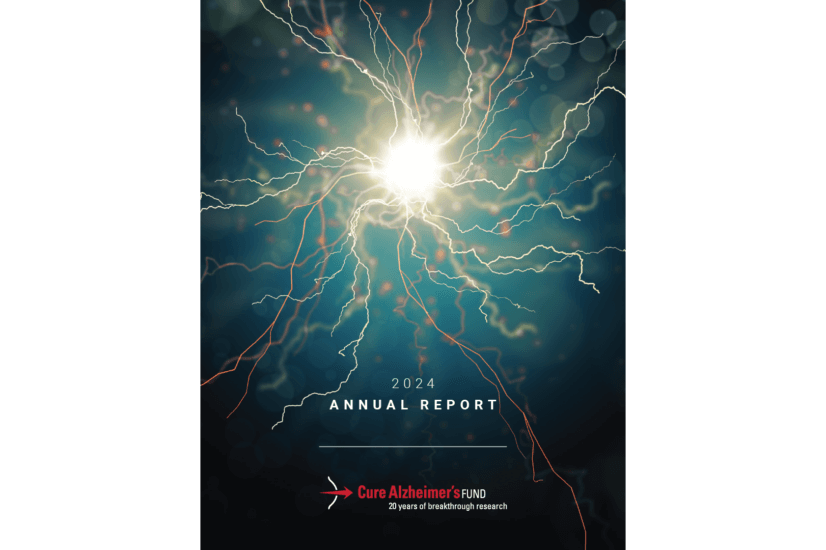Despite the growing appreciation neuroscientists now have for the clear relationship that exists between the brain and the immune system, most studies have focused their attention on microglia—the brain’s primary innate immune cells. However, Jonathan Kipnis, Ph.D. from the Washington University School of Medicine in St. Louis, has kept his eye on a different part of the neuroimmune puzzle: the meninges.
The meninges are a three-layered membrane that protects the brain and spinal cord, comprises a rich network of blood vessels. The meningeal lymphatic vessels, in particular, are critical for moving waste products from the cerebrospinal fluid (CSF) into cervical lymph nodes via the glymphatic system. Aging is known to induce a loss of meningeal lymphatic coverage and although this loss correlates strongly with cognitive decline, the underlying biology mediating these effects has remained unclear. A recent study published in Science Advances by Dr. Kipnis now reports on the important role that the C-C chemokine receptor type 7 (CCR7) plays in mediating aging-related impairments in meningeal immunity.
To begin with, the researchers sought to profile T-cells in the meninges and deep cervical lymph nodes (dCLNs) of older (24-25-month-old) mice. Compared to the younger adult (2-3-month-old) mice, the older group revealed an accumulation of T cells in the meninges and a concomitant decrease of T-cells in the brain-draining deep cervical lymph nodes (dCLNs), likely reflecting a failure of migration from the meninges to the dCLNs. These aging-related impairments in meningeal immunity and trafficking were consistent with previously published findings by other groups. However, Kipnis and his team wanted to take it one step further to better understand how and why this change was occurring in the first place.
The story begins with the C-C chemokine receptor type 7 (CCR7), a receptor important for mediating immune cell migration. Previously published work from Kipnis and colleagues has shown that impaired signaling through the CCR7 receptor leads to an accumulation of T-cells (a type of immune cell) in the meninges and consequently impaired migration of immune cells from the meninges to the deep cervical lymph nodes (dCLNs). As immune cells, T-cells play a critical role in immune adaptation and regulatory T-cells (commonly referred to as T-regs) are important for suppressing the immune system, keeping it in a nice homeostatic balance.
Could it be that CCR7 receptors were also driving the accumulation of T-cells observed in the meninges observed in the brains of aging mice? To answer this question, the team directly measured and compared CCR7 expression levels between adult (4-month-old) and old (25-months-old) mice and found that, compared to the younger group, old (25-month-old) mice exhibited reduced CCR7 expression in both the meninges and dCLN while simultaneously exhibited an increased expression of regulatory T-cells (T-regs).
Next, they used a CCR7-GFP reporter mouse to directly assess and compare CCR7 expression levels in adult-aged (3-month-old) compared to middle-aged (12-14-month-old) mice and found significantly decreased CCR7 expression in the meninges and dCLNs of the middle-aged group of mice compared to the young group. Importantly, this change was not observed in the blood or liver, indicating that this change is brain-specific. Collectively, these experiments indicate that as animals age, CCR7 expression decreases, T-cells accumulate in the meninges and T-cell migration to the dCLNs is impaired.
Next, to determine whether decreased CCR7 expression would mirror observed aging-driven changes on meningeal immunity, the researchers transplanted adult (3-month-old) wild-type mice with bone marrow of cells taken from either WT or CCR7 knockout mice (i.e., lacking CCR7 receptors). As before, older mice with reduced levels of CCR7 (in this case, those that received a bone marrow transplant from CCR7 knockout mice) exhibited increased levels of T-cells in the meninges. Collectively, the experiments demonstrate that decreased levels of CCR7 result in an aging-like T-cell response with increased T-cells accumulated in the meninges.
Appreciating the important role that T-cells play on cognitive function, the researchers next tested all mice on a series of behavioral tests. Both groups with CCR7 knocked out (whether originally or transplanted) performed poorly in tests of spatial memory, compared to wildtype animals. And despite normal vasculature, CCR7 knockout mice exhibited impaired glymphatic function, leading to reduced clearance of waste materials.
Next, the researchers compared CCR7 expression patterns of adult (3-month-old) and middle-aged (12-14-month-old) 5xFAD transgenic mice. As they predicted, the older group exhibited a significant decrease in CCR7-expressing T cells in the meninges and dCLNs. Curious about whether this CCR7 decrease would impact Aβ clearance, the research team then generated 5-month-old transgenic 5xFAD mice without CCR7 receptors and analyzed the both meningeal immune response and Aβ plaque burden. Their analysis revealed a reduced T-reg response in the meninges and an increased Aβ plaque burden. On tests of cognition, these mice performed poorly in spatial learning and memory tasks. Furthermore, an analysis of neuroinflammatory markers in 5xFAD mice revealed that CCR7 deficiency disrupts brain vascular and microglial activation.
Next, to test whether treating meningeal immunity (and in particular the increased T-reg response) was a promising therapeutic strategy, the team treated 25-month-old (wildtype) mice with anti-CD25 antibodies. Older mice treated with the antibody demonstrated a reduced T-reg response in the meninges and dCLNs and exhibited improved spatial learning and memory in behavioral tests, suggesting that modulating T-regs could buffer against aging-related cognitive decline caused by the alterations in meningeal immunity.
Finally, although these experiments have yet to be conducted, Kipnis and his team hypothesize that boosting CCR7-mediated immune cell egress might be yet another way to buffer against cognitive decline in both normal aging and Alzheimer’s disease. Altogether, the results of this study clarify the CCR7-mediated disruption in meningeal lymphatics and the deleterious consequences this disruption can have on neuroimmunity and cognition, if left untreated.
Published in:
Jonathan Kipnis, Ph.D., Washington University School of Medicine in St. Louis








